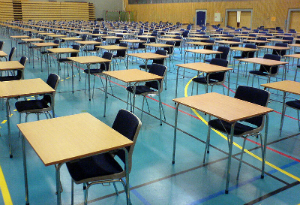Richer Pupils more than twice as likely to take the right A-levels to get into University
- Last updated 01 Apr 2015
Clever but less affluent students are being left behind by their richer classmates: they are less than half as likely to take A-level subjects that get them into good universities, according to new research.

However, less affluent students’ chances of gaining good A-level results are significantly improved when they experience help at home. For example. when they get into the habit of daily homework, students are nine times as likely to get three A-levels.
The report, Subject to Background, by professors from the Oxford University Department of Education, draws on data from more than 3,000 young people who have been tracked through school since the age of three.
It shows that only 33% of bright but disadvantaged students took one or more A-level exams in ‘facilitating subjects’ that universities prioritise, such as Maths, English, the sciences, humanities or modern languages, compared with 58% of their more advantaged counterparts.
At the same time, only 35% of the disadvantaged group – identified as academically able from their test scores at age 11 – went on to get three A-levels in any subjects compared with 60% of their equally as bright, but advantaged, peers.
Peter Lampl, chairman of the Sutton Trust and of the Education Endowment Foundation said: “The fact that bright, disadvantaged students fall so far behind when they reach their A-levels shows that government and schools urgently need to do more to support able students from less advantaged homes.
“We must ensure that access to the best schools and opportunities for academic enrichment outside school are available to all students. It is also vital that schools advise their students on the right subject choices at GCSE and A-level so as to maximise their potential.”
But the researcher identified a number of factors that made it significantly more likely that the bright disadvantaged students would attain three A-levels including:
- Having benefited from pre-school education, especially of higher quality
- Having had enrichment and supportive home learning environments from a young age, including reading books and going on educational outings during the early years of secondary school
- Having been to an outstanding secondary school (as rated by Ofsted) and one where there were good relationships of trust between teachers and students, with regular feedback
- Having spent more time doing daily homework on a regular basis before and during their GCSEs.
News
- Students base University choices on Online Reputation, apparently
- UCAS Extra Opens Today & Could Help Thousands of University & College Applicants
- Numbers of Young People Not in Education, Employment or Training have Fallen since Last Year
- Three-quarters of young people fear they’ll never get the right job
- Businesses need more Apprentices and these Events will show them why
- Top UK employers for school leavers: finalists announced
- Minister celebrates female engineering & manufacturing apprentices
- 100 New Traineeships Available at BDO
- International Women’s Day: gender pay gap is even wider among apprentices
- Labour Party will Cut Tuition Fees by £3K if it Wins the Election